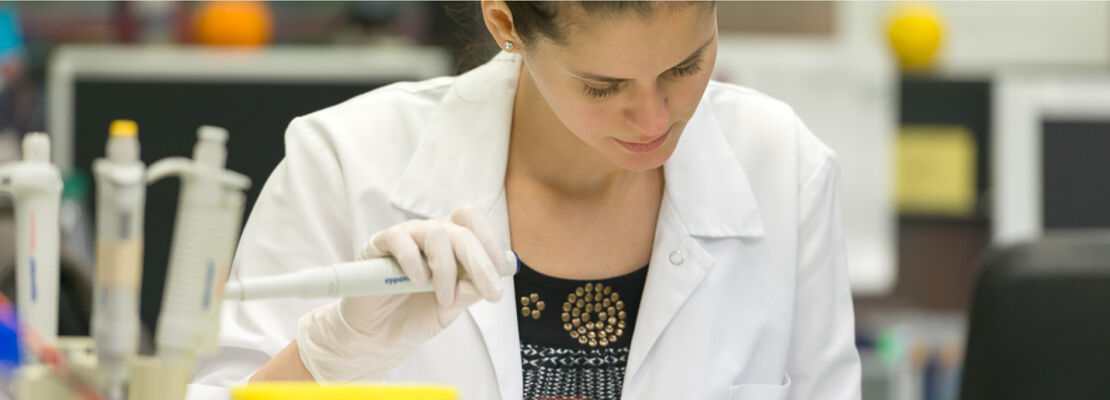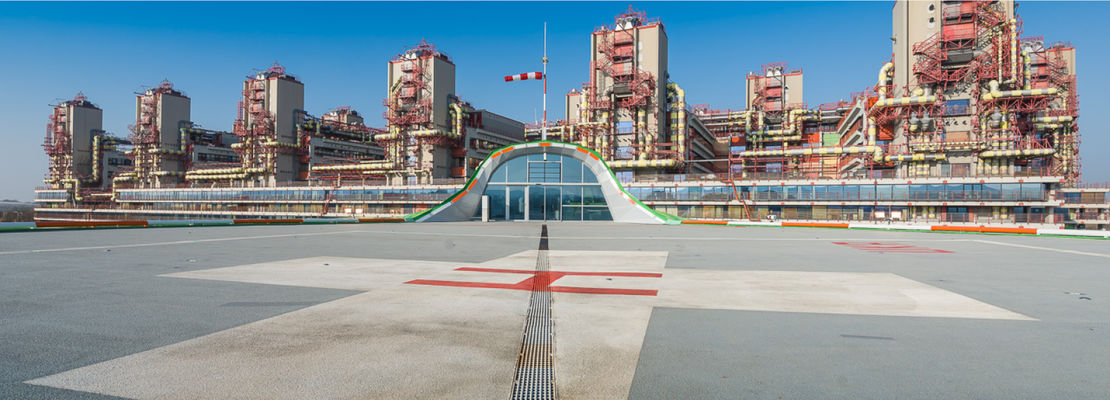Function of ADAM family proteases in inflammation and cancer (AG Ludwig
The Institute of Molecular Pharmacology (Univ.-Prof. Dr. Andreas Ludwig) investigates fundamental processes in inflammation and cancer. A particular focus is on the production and release of inflammatory mediators and growth factors, the regulation of vascular permeability, the recruitment and activation of leukocytes and metastatic cell migration. A central question here is how the mode of action of cytokines, growth factors, chemotactic mediators and endothelial adhesion molecules is regulated by membrane-bound metalloproteinases of the ADAM family. These proteases include in particular ADAM10 and ADAM17, which cleave a number of membrane-bound signal molecules from the cell surface and thus convert them into a soluble form. We are interested in whether and how these proteases contribute to the inflammatory and metastatic or proliferative process and to what extent therapeutic intervention options arise from this. The investigations are primarily carried out on models of acute lung inflammation caused by bacterial toxins or models of chronic pulmonary inflammation in asthma or fibrosis. Here, conditionally transgenic mice are used to elucidate the phase- and cell-specific role of the proteases and their substrates. In addition, in vitro experiments with lentivirally transduced primary cells are carried out in order to understand the molecular processes of permeability regulation, mediator production and leukocyte recruitment as well as regeneration during the inflammation process. Our in vivo and in vitro studies have shown that the pro-inflammatory activity of endothelial ADAM17 is mediated by cleaving adhesion molecules and increasing the permeability of the endothelium. ADAM17 has a pro-inflammatory effect on smooth muscle cells by releasing transactivating growth factors. In leukocytes, ADAM10 enhances the inflammatory process by contributing to the recruitment, adhesion and signal transduction of leukocytes. In contrast to ADAM10 and ADAM17 that are highly expressed at basal levels in many tissues and cell types, ADAM8 is highly expressed only at sites of inflammation or cancer. ADAM8 promotes integrin activation and downstream signalling and by this contributes to leukocyte migration into lung as well as hepatoma cell metastasis and proliferation. Although these results indicate an overall pro-inflammatory effect of the investigated ADAM proteases in acute pulmonary inflammation, their functioning in chronic inflammation and in defense against infection remains to be clarified. As part of this work, we further characterize regulatory adapter molecules (iRhoms), small-molecule and inhibitors (hydroxamate inhibitors for ADAMs), and produce inhibitory proteins (partial structures of substrates) and lentiviral constructs (shRNA vectors for ADAMs), with the aim of using them to manipulate the inflammatory process.
Five important original works
- Ludwig A, Petersen F, Zahn S, Gotze O, Schroder JM, Flad HD, Brandt E. The CXC-chemokine neutrophil-activating peptide-2 induces two distinct optima of neutrophil chemotaxis by differential interaction with interleukin-8 receptors CXCR-1 and CXCR-2. Blood. 1997;90:4588-4597.
- Hundhausen C, Misztela D, Berkhout TA, Broadway N, Saftig P, Reiss K, Hartmann D, Fahrenholz F, Postina R, Matthews V, Kallen KJ, Rose-John S, Ludwig A. The disintegrin-like metalloproteinase ADAM10 is involved in constitutive cleavage of CX3CL1 (fractalkine) and regulates CX3CL1-mediated cell-cell adhesion. Blood. 2003;102:1186-1195.
- Koenen RR, Pruessmeyer J, Soehnlein O, Fraemohs L, Zernecke A, Schwarz N, Reiss K, Sarabi A, Lindbom L, Hackeng TM, Weber C, Ludwig A. Regulated release and functional modulation of junctional adhesion molecule A by disintegrin metalloproteinases. Blood. 2009;113:4799-4809.
- Dreymueller D, Martin C, Kogel T, Pruessmeyer J, Hess FM, Horiuchi K, Uhlig U, Ludwig A. Lung endothelial ADAM17 regulates the acute inflammatory response to lipopolysaccharide, EMBO Mol Med 2012; 4:412-23.
- Pruessmeyer J, Hess FM, Ahlert H, Groth E, Pasqualon T, Schwarz N, Nyamoya S, Kollert J, van der Vorst E, Donners M, Martin C, Uhlig S, Saftig P, Dreymueller D, Ludwig A. Leukocytes require ADAM10 but not ADAM17 for their migration and inflammatory recruitment into the alveolar space . Blood. 2014 (Epub ahead of print).
further publications:


![[Translate to en:] [Translate to en:]](/fileadmin/files/global/_processed_/a/e/csm_Homepage_Header_Mosaik_Digitale_Patientenakademie_a70850c5a6.jpg)
![[Translate to en:] [Translate to en:]](/fileadmin/files/klinik-neurochirurgie/_processed_/f/a/csm__DSC8610_810ca6c404.jpg)


![[Translate to en:] [Translate to en:]](/fileadmin/files/klinik-neurochirurgie/_processed_/c/6/csm__DSC6827_8235404da8.jpg)


![[Translate to en:] [Translate to en:]](/fileadmin/files/global/_processed_/6/9/csm_Homepage_Header_Zahnprofis_neu_11014e086b.jpg)



![[Translate to en:] [Translate to en:]](/fileadmin/files/global/_processed_/5/d/csm_Homepage_Header_Pflege-Podcast_Schichtwechsel_ohne_Schriftzug_unten_9cef107de3.jpg)
![[Translate to en:] [Translate to en:]](/fileadmin/files/klinik-gynaekologie-geburtshilfe/_processed_/b/f/csm_Header_DSC1044_2762f31c37.jpg)
![[Translate to en:] [Translate to en:]](/fileadmin/files/klinik-urologie/_processed_/d/1/csm__ME27551_9b86eb20f4.jpg)
![[Translate to en:] [Translate to en:]](/fileadmin/files/global/_processed_/7/4/csm_Homepage_Header_Podcasts_2023_668979f13b.jpg)